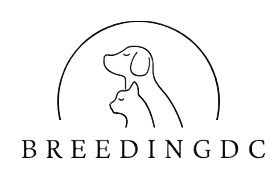# The Ultimate Guide to Feeding Your Canine Companion: Unlocking the Secrets of Optimal Nutrition
When it comes to our furry friends’ well-being, nutrition plays a vital role in ensuring they lead healthy and happy lives. As responsible pet parents, we all strive to provide the best care for our dogs, and that includes offering them a balanced and nutritious diet. So, let’s embark on a journey to explore the best foods for dogs and unlock the secrets of canine nutrition.
## The Foundation of Canine Health
At the heart of every dog’s nutrition lies a balanced diet. Similar to humans, dogs require a combination of proteins, carbohydrates, fats, vitamins, and minerals to thrive. These essential nutrients fuel their energetic lifestyles and support overall health. When choosing food for your dog, it’s crucial to prioritize high-quality ingredients to meet their nutritional needs effectively.
Proteins are the building blocks for healthy muscles, organs, and tissues. Look for animal-based proteins like chicken, beef, or fish as the primary source in your dog’s food. These proteins contain essential amino acids, which are crucial for growth and development. Carbohydrates provide energy, and while dogs don’t require large amounts, whole grains like brown rice or oats can be beneficial.
Healthy fats, such as omega-3 and omega-6 fatty acids, promote a lustrous coat, reduce inflammation, and support brain health. Vitamins and minerals, including vitamin A, D, E, and B vitamins, as well as calcium and zinc, are essential for various bodily functions, from immunity to bone health.
## Navigating the Food Options
The pet food market offers a wide array of choices, ranging from dry kibble to wet food and raw diets. Each option has its merits, and it’s essential to understand them to make an informed decision.
**Dry Kibble:** Convenient and cost-effective, dry kibble is a popular choice. Look for brands that use high-quality ingredients and avoid excessive fillers. Premium kibble ensures complete and balanced nutrition for your dog.
**Wet Food:** Canned or pouched wet food has a higher moisture content, which can be beneficial for dogs who need more hydration. It often contains real meat and can be an excellent supplement to dry kibble.
**Raw Diets:** Raw food diets, often consisting of raw meat, bones, and vegetables, have gained popularity. While proponents argue that it mimics a dog’s natural diet, it requires careful handling and consultation with a veterinarian to ensure nutritional adequacy.
## Reading the Labels
Understanding pet food labels is crucial for making informed choices. Look for products with whole meat sources listed first, indicating a higher protein content. Avoid foods with excessive fillers, artificial preservatives, and colorings. Ingredients like by-products, corn syrup, and artificial flavors should be avoided as they may provide little nutritional value.
## Tailoring Nutrition to Your Dog’s Needs
Every dog is unique, and their nutritional needs may vary based on age, breed, size, and activity level. Puppies, for example, require more protein and calories for growth, while senior dogs benefit from diets that support joint health and digestion. Working or highly active dogs may need higher calorie and nutrient-dense foods.
Consulting with your veterinarian is vital to tailoring a diet that meets your dog’s specific requirements. They can provide guidance on portion sizes, recommended food types, and any necessary dietary adjustments based on your dog’s individual health needs.
In conclusion, providing your dog with the best nutrition is a cornerstone of responsible pet ownership. By understanding the fundamentals of canine nutrition, exploring various food options, and carefully reading labels, you can make informed choices for your furry friend. Remember, a balanced diet tailored to your dog’s needs is the key to unlocking their full potential and ensuring a happy and healthy life. Stay tuned for more insights and tips on canine nutrition in our upcoming articles!

